The Man Who Mistook His Life For A Memory
Who are we without what we remember about ourselves?
Hello! This is Everything Is Amazing, a science newsletter about the fathomless depths of my own ignorance.
Did you know maps haven’t always pointed north? Me neither, until I wrote about it.
Did you know clouds are alive? Sort of true!
Is it possible for you to see impossible colours? That’s…maybe the dumbest sentence I’ve ever written (which is really saying something) but also YES YOU (PROBABLY) CAN!
And so on. It’s that kind of newsletter.
Before we get started on today’s main course, a couple of random mini-sausages-with-bits-of-pineapple skewered-with-a-toothpick (I’m from Yorkshire, and hors d'œuvres were too fancy for the likes of us).
A couple of weeks ago I posted an old photo of myself on social media - and to my completely amazement, everyone got the joke that accompanied it:
(That’s my aunt up there, looking bemused but not realising this picture is destined for greatness.)
The positive reaction wasn’t just the Bluesky science crowd being lovably nerdy - I also put it on Threads, where it went mildly viral.
It’s an example of one of my favourite things about writing this newsletter: I assume something I’ve ‘discovered’ is excitingly obscure, but when I share it around in the hope of blowing other people’s minds, I find it’s common knowledge! Go me.
You already know this, but yes, that’s a reference to Dazzle camouflage, employed to confuse & thwart the German navy in both world wars.
Did it actually work? Well, maybe not so much.
Does everyone remember it anyway? HELL yes, as it turns out.
Staying with social media - here’s something to bear in mind as you surf its myriad wonders and horrors:
If you’ve ever plummeted into an abyss of despair from seeing a poll that shows a very small but still alarmingly non-zero percentage of people believe some idiotic thing that makes you think the world is collapsing around your ears, here’s something to bear in mind.
“In the 2013 post "Lizardman's Constant is 4%", [Scott] Alexander [of the newsletter Astral Codex Ten] coined the term "Lizardman's Constant", referring to the approximate percentage of responses to a poll, survey, or quiz that are not sincere.
The post was responding to a Public Policy Polling statement that "four percent of Americans believe lizardmen are running the Earth", which Alexander attributed to people giving a polling company an answer they did not really believe to be true, out of carelessness, politeness, anger, or amusement.
Alexander suggested that polls should include a question with an absurd answer as one of the options, so anyone choosing that option could be weeded out as a troll.”
(Via Wikipedia.)
Hat-tip to historian
for making me aware of it, via his Substack Note yesterday about a recent YouGov poll apparently suggesting that 9% of Americans have a “Very Or Somewhat Favorable” view of the Black Death (!).Okay!
My next two newsletters are going to be for paid subscribers only (and will include the start of this new series, as promised).
But since it’s a direct prequel to what I’ll be writing about next time, today I’m resharing the first part of last season’s investigation into human memory…
And this story starts with one of the most forgetful people in the world, staring at a clock.
Henry Molaison - known as “HM” in the medical community to protect his identity - had a really extraordinary brain, and the best way to discover this was to ask him a simple question about time.
That’s what has just happened, here in this room he’s sat in. A few seconds ago, a researcher told him she was now leaving the room and returning in a few minutes, and when she comes back, could he please tell her how long she’d been gone?
Most of us would ace this. Consider your sense of passing time for a second - that feeling you have (without consulting your watch or the clock on your phone) of roughly how long it’s been since this or that occurred. Sure, if you’re twiddling your thumbs in a bored sort of way, that time will crawl. If you’re having fun, it’ll fly by - and it does seem like it speeds up as we age, which may be down to the novelty of our experiences (the more commonplace the action, the more your working memory will tend to blur all instances of it together and skim your awareness over them, a bit like how Troxler’s Fading suggests how our minds keep our thoughts uncluttered by constantly tuning out the overfamiliar)…
But sensing just a few minutes? Nah. Piece of cake.
Not for Henry, though. By the time the researcher returns, he will have forgotten that she was here at all. He won’t even remember her face or her name - even though he’s been working with her for days.
In less than 60 seconds from now - in a process that’s happening continually with everything he experiences while awake - all Henry’s short-term memories will completely drain away like water through a sieve. He’ll still remain “Henry,” for reasons we’ll go into shortly - but the specific experiences of the last few minutes will be lost to him, for good.
But Henry is smart. He doesn’t know exactly that’s going on, but he’s already worked out that he’s the subject of a psychological study, and he suspects this test will be about time. So - he cheats. He figures his brain is unreliable, but the clock on the wall that the researcher forgot about is exactly what he needs.
Of course, he can’t just use it like we would: glancing at it now and noting the time, then doing so again later when the researcher returns, then deducting one time from the other. That just won’t work, because Henry’s memory is continually purging itself. After 60 seconds, he won’t remember looking at the clock right now, or remember why he’d even want to do that - and when the researcher arrives it’ll be a complete surprise to him (“hello!”)…
Instead, he starts silently repeating that time to himself, over and over and over. He’s increasingly unaware why he’s repeating it, but he’s smart enough to trust himself.
The researcher comes back in - a complete stranger. She asks him how long he’s been waiting for her to return.
He’s suddenly aware of his own body and what it’s doing. Wait - why is he repeating this time to himself under his breath, over and over? Is this a clue to what’s going on?
He sees there’s a clock on the wall, and glances at it. Now the math is quick and easy: deduct the time he’s whispering from the one on the wall. He correctly guesses she’s been gone [x] minutes and tells her - and then, of course, forgets he’s done so shortly afterwards.
Henry wasn’t always this way.
In 1953, aged 27, he was seeking treatment for severe epilepsy - possibly stemming from an injury in a cycling accident when he was 7 years old. His occasional seizures for the remainder of his childhood had now turned into the terribly debilitating form known as grand mal, forcing him to leave his assembly line job. Henry is desperate for a solution, no matter how radical the treatment. He’ll try anything.
Enter William Beecher Scoville, a neurosurgeon at Hartford Hospital, Connecticut. After unsuccessfully trying more conventional treatments on Henry, he proposed a radical experiment based on - in his phrasing - a “hunch”. He’d heard reports of a Canadian surgeon who had removed a specific part of the brains of two patients with epilepsy, and to a certain extent, it seemed to have worked. Not perfectly, not enough to cure them completely, but - progress?
The target of that surgery was the hippocampus, a structure in the brain’s allocortex with a startling similarity to a seahorse (hence its name, from ἱππόκαμπος, “seahorse,” in Greek) or perhaps a hands-free phone headset designed by H.R. Giger:
This curious curl of brain tissue sits directly under the maze-like squishy neocortex that we all visually associate with the word “brain”.
We actually have two hippocampi, one on each side of our heads, roughly level with our ears - and by surgically removing just one of them in each of their patients, those Canadian surgeons seemed to have desensitized the brain’s trigger for epileptic seizures.
But hey, thinks Scoville: what if you took both of them out? Wouldn’t that completely cure someone’s epilepsy?
If this sounds like a plot twist in a horror film, with Scoville as the morally challenged mad scientist, that’s perhaps an injustice. Even today, epilepsy surgery involving removal of parts of the brain is still a legitimate (if controversial) form of medical intervention.
But four years after treating Molaison, in a science paper he co-authored with neuropsychologist Brenda Milner, Scoville publicly admitted that his experiment in double-hippocampus removal was a terrible mistake. (Although, it’s worth noting that in a later book written by Scoville’s grandson, the author quotes his grandfather as saying "I prefer action to thought, which is why I am a surgeon. I like to see results.")
Scoville’s surgery went ahead - and it froze Henry in time. For the rest of his life, until he died at the grand old age of 82 in 2008, all he could remember was the events of his life a few years short of that surgery in 1953, and very, very little else.
Our personalities are constructed from memories. They’re what shape us as we go through life, what course-correct our future actions based on regrets and fears and guilt, what send us in search of new moments of joy and fulfilment like the ones we most treasure from our past - and when everything really seems to be coming together in our life, they give us a sense of progression and direction. Where is this crazy ride going? Isn’t it fun (and stressful, and nerve-wracking) to be finding out?
But all Henry would have for his remaining 55 years were the memories of his early twenties, bolstered temporarily with what he could learn about the world around him over the next few dozen seconds. Nothing else would linger in his conscious brain. His anterograde amnesia - the kind used as a lazy trope in many pulp thrillers, and much more successfully in Christopher Nolan’s haunting Memento (2000) - was devastatingly total.
He certainly remained an able conversationalist - but only when his mind stayed undistracted and working single-mindedly with bite-sized packets of attention. This is severely limiting. Think of how long your average train of thought is when you’re deep in discussion with a friend, and how often you loop back to address some earlier point of yours or theirs. Think of all those conversational rabbit-holes it’s so fun to go down, where Henry could never follow…
Hell, think of entertainment. Yes, we’ve all wished we could read our favourite book or watch our favourite film for the first time all over again - but sixty seconds isn’t long enough to read a page or get through the opening credits. You can’t even squeeze a Pixar Short into that amount of time. Or a song.
Then there’s all our social information, which allows us to choose how we fit into society. Anyone who Henry met after 1953 remained a stranger to him until he died, in need of constant reintroduction to him. He had no idea what was happening in the world, who the current President was, what computers were, or whether astronauts had finally landed on the Moon. He never knew how old he was growing…
And of course - he had no way to truly trust anyone, since trust is constructed from experience, so he was perfectly open to being taken advantage of by every crook, scammer or unscrupulous tabloid reporter under the sun. (It’s not hard to see why his identity was protected for so long.)
Somewhere along the way, Henry had lost what we know as semantic memories (“what year did Neil Armstrong set foot on the Moon?”) along with his episodic memories (“where were you when you had your first kiss?”). Or at least, it seemed he’d lost the ability to form new ones in each case, which had set his awareness adrift in his own life, with no ability to anchor himself to anything but the rapidly receding past…
This is the great tragedy of memory loss: the withering of your identity and sense of self. Even our bitterest memories have a constructive role to play in making us who we are now. If from our perspective it seemed like they never happened, who does that make us? And what about those unique professional skills that take decades of our lives to hone, until they’re as much a part of our personality as anything else?
Who are we without the things we remember about ourselves?
It’s 2017, and professional viola player Meghan Beaudry is also looking at the time - but it’s appearing increasingly strange to her.
“The clock above the door ticked erratically, as if someone outside the room was winding the gears forward and then turning them back every few seconds. The words Dr. W spoke seemed to fall from her mouth, then slowly float across the room one by one. To my ears, her speech was devoid of any cadence. Unable to hear the pauses that indicated the ends of her sentences, I kept interrupting her.”
Meghan’s brain had become severely inflamed from a bad flare-up of lupus, the chronic autoimmune disease she’d been attempting to manage for the last four years. Now, like Henry, she’d become unmoored from her own timeline, as she recently explained at Salon:
“In addition to my difficulty perceiving short spans of time, my comprehension of longer periods of time was also affected. I referred to every past event in my life, whether it was my doctor’s appointment the day before or an audition I’d taken years ago, as having happened “yesterday.” I couldn’t remember what date, month or even year it was. I forgot what times of day were appropriate to call friends and family on the phone, and I didn’t understand what people meant when they said they were “busy.” Bedridden and unable to comprehend time, my illness seemed to drag on for eternity with no end in sight.”
To understand her condition better, Beaudry dove into the latest research - and discovered this study from 2018, which suggests that our sense of passing time - “a subjective time derived from the ongoing flow of experience” - is either created or encoded by the hippocampus, allowing us to experience “a unified representation of what, where and when.”
So it seems that the hippocampus also helps us make sense of time - which figures, because isn’t a memory also just an awareness of a time that’s passed that we somehow embody with meaning?
It’s therefore tempting to assign all sorts of roles to the seahorse in our heads: a kitchen, say, where the ingredients of raw sensory data get cooked into memories, or perhaps something like the Sorting Hat from a Harry Potter novel: “ah yes, you belong in House Trauma! Go to the poorly lit table with the spiders and the stacks of Dan Brown novels.”
But so much is still unclear. Even the findings from studying Henry (a case which for obvious reasons remains unique) are confused by the nature of the surgery Scoville did. Later investigations of Henry’s brain in 2014 found that a significant amount of Henry’s hippocampal tissue had actually survived the surgery - and found hitherto undiscovered lesions on his prefrontal cortex, which might be responsible for any number of his cognitive problems.
Whatever is exactly happening here, it does seem that while the hippocampus is somehow involved, important memories eventually get shuttled off elsewhere in the brain for long-term storage. Henry’s memories didn’t begin directly before his surgery - there was a further gap, going back a few years before 1953.
This suggests that crafting short-term memories into the more permanent variety takes a good while, perhaps as long as years - and that Henry’s surgery interrupted that recollection-encoding process before the final version of his most recently “finished” memories could be archived elsewhere in his brain.
If that wasn’t complicated enough, it also seemed Henry’s body kept remembering things just fine.
In Adventures In Memory, Hilde & Ylva Østby note:
“Milner asked [Henry] to draw a star while looking only at a reflection of his hand in a mirror. For anyone, this is a difficult task, because when you’re watching a mirror image, you tend to move the pencil in the wrong direction when you get to the corner of the star. But with practice you can improve…
Unlike remembering events you have experienced, or figuring out a maze, this kind of memory doesn’t involve conscious thought. It’s like riding a bicycle; you never remember that you have to move your feet a certain way, or tilt your body to keep your balance; it becomes second nature. Each time Henry repeated the mirror drawing task, he too improved…
His final, almost perfectly drawn star surprised him, because he had no knowledge of the previous attempts that had helped him to gradually improve.
“That’s strange. I thought it would be difficult, but it looks as though I’ve done it rather well,” he said, astounded.”
What this points to is yet another type of memory, an unconscious one housed outside the areas of Henry’s brain that were damaged or excised in the surgery in 1953.
This ties in with the theory of embodied memory - the “second nature” actions your body acquires through physical repetition, like playing scales on a piano until your fingers learn to do what your will is telling them - that Annie Murphy Paul outlines in her book The Extended Mind, as I previously talked about here.
(Another fascinating detail supporting this: five years after his surgery, Henry moved to a new home - and it seems his embodied, or procedural, memory eventually allowed him to subconsciously learn the new layout of the place, even though he couldn’t say how he knew the way to, say, the bathroom or the kitchen. To his conscious mind, it just seemed like the right direction to go in.)
What all this indicates is that what we call “memory” isn’t like a discrete packet of data, the kind you could point to in the memory of a computer and say “THAT’S where that thing is stored.” It’s more like a particular root-like array of connections that spread out over the brain (and beyond!) like, like, uh…
Maybe analogies fail here, because it’s just such a complicated and massively interconnected thing. A single route through all the world’s roads? That’s analogy is probably many magnitudes short of the mark, considering the human brain’s estimated 100 trillion synaptic connections (which may even be a conservative guess). A line connecting all the grains of sand on all the beaches of the world? Okay, this is getting silly.
In short: the software of our minds might not be designed to imagine the complexity of the hardware it runs on - which is very peculiar indeed, if you think about it long enough.
But one thing seems clear - and it relates back to the way Black Cab taxi drivers learn all the roads of London in order to pass the legendary Knowledge exam, as I previously wrote about here:
“It’s the relationship of specific roads to the things on and around them that make them stick in their memory. Memorising the landmarks makes it easier to remember the roads, and vice versa. Advanced students of The Knowledge are also encouraged to read into the history of the regions of London they’re trying to memorise - and they’re told, quite emphatically, that they need to personally experience the route from as many angles as possible, building up a three-dimensional image in their minds that they can mentally traverse when working out a route.
So this way of getting a deeper, specific understanding is about finding lots of different but interconnecting things about whatever it is you want to be interested in.”
It seems that this is surprisingly similar to how our memories are wired up at the microscopic level - and therefore, the key to creating a good memory is not just burning it into your brain via rote learning again and again, but by reinforcing it from all directions with data from all your different memories, until there isn’t just one ‘route’ there - there’s hundreds, thousands, or even millions….
Then it’s stuck in your mind for good.
This series continued here:
Become a paid subscriber here to read it & access every other paywalled newsletter, including the one coming in a few days!
Cheers,
Mike.




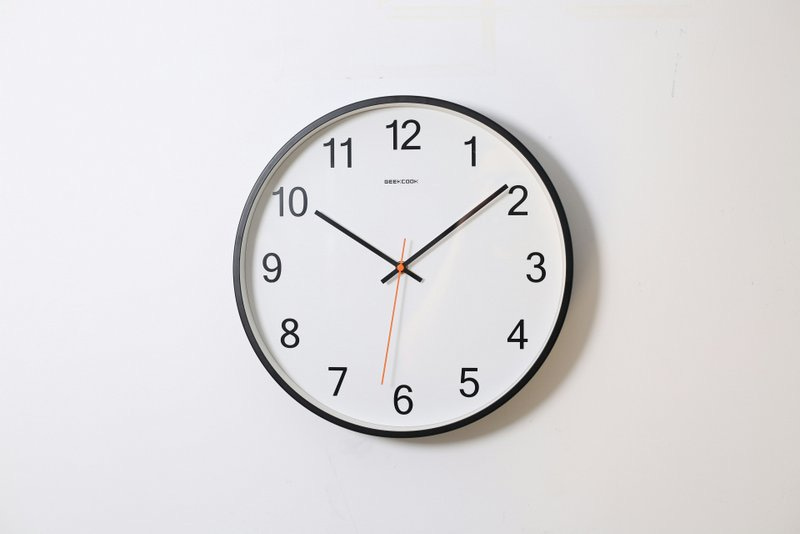
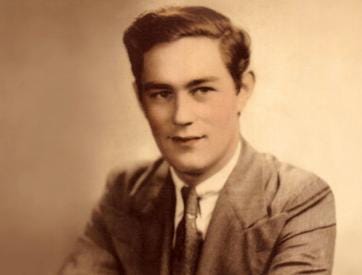
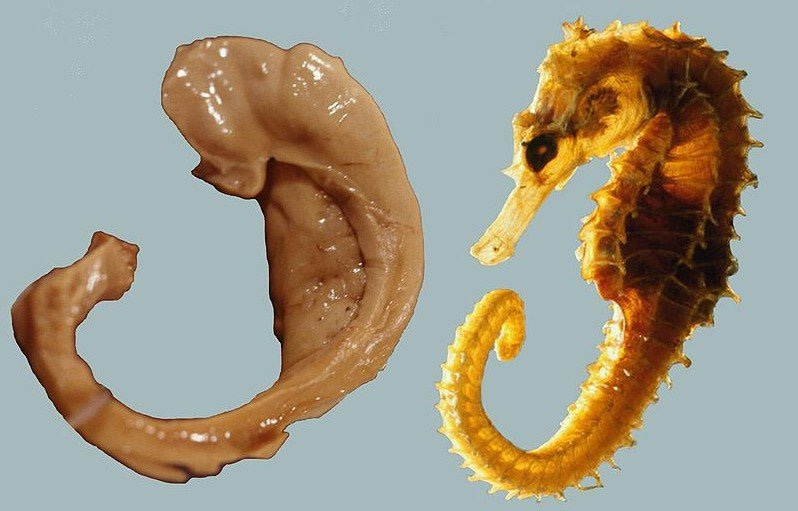

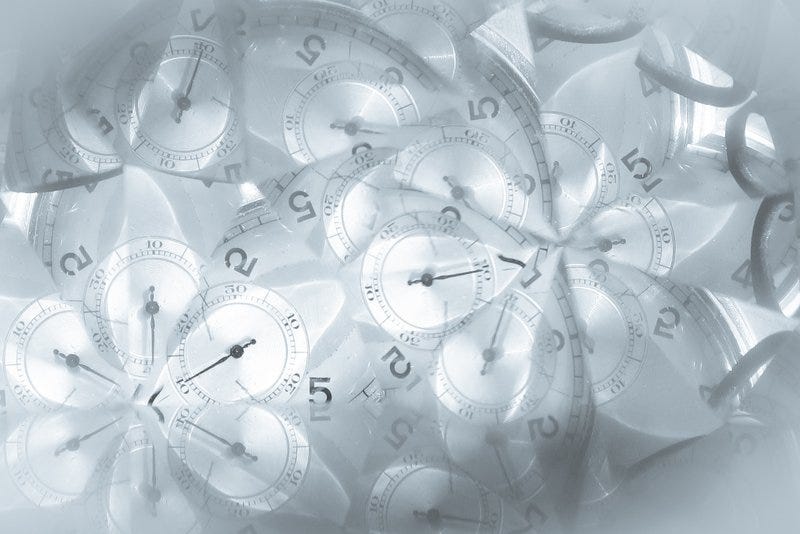
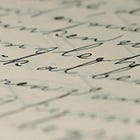
So interesting and validating to realize that information gathering with my neurodivergent brain is actually helpful! I love to be in the state of curiosity and wonder as much as I possibly can. I appreciate you and your articles very much Mike!
Military training relies heavily on the concept of muscle memory for weapons handling and other repetitive motions. I’m also a believer in the theory that we can incorporate memories of traumatic events experienced by our direct ancestors.